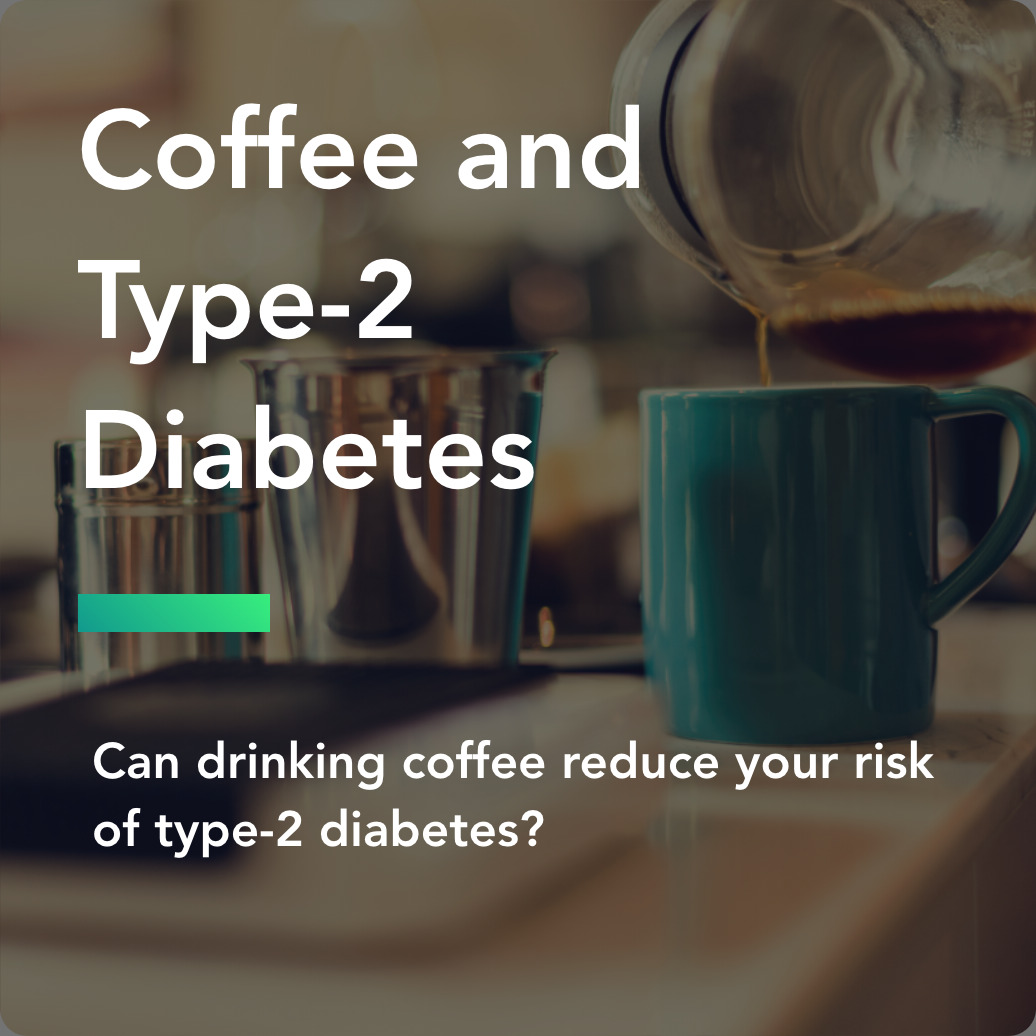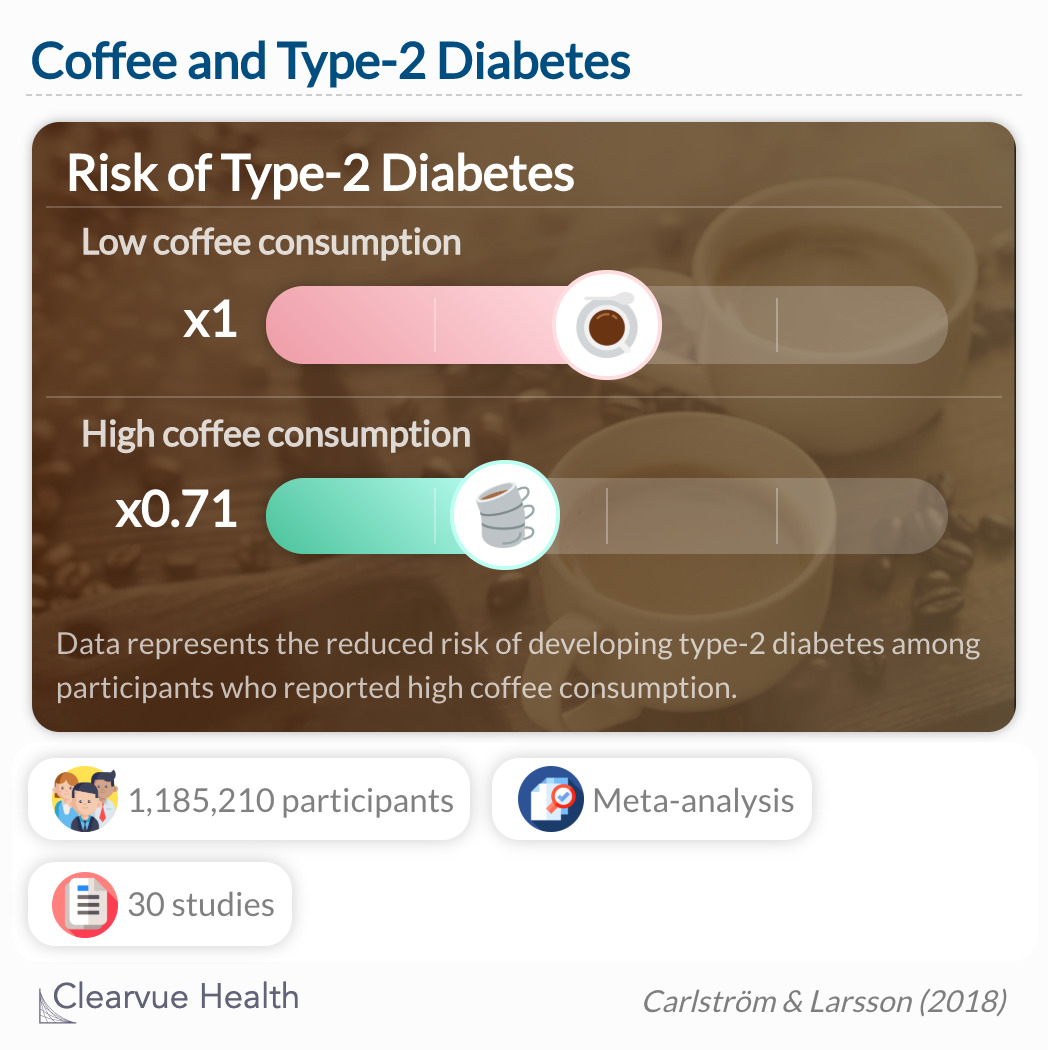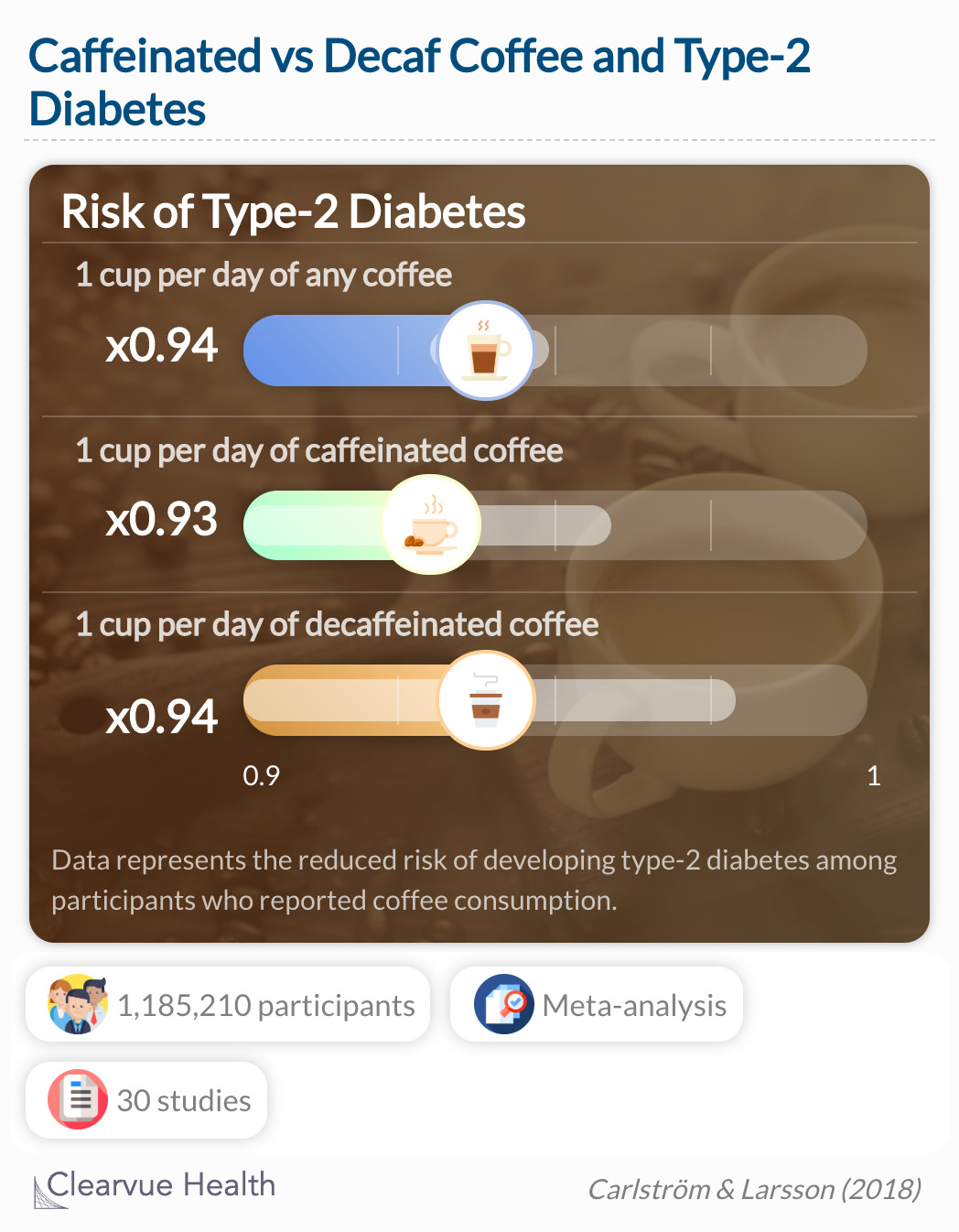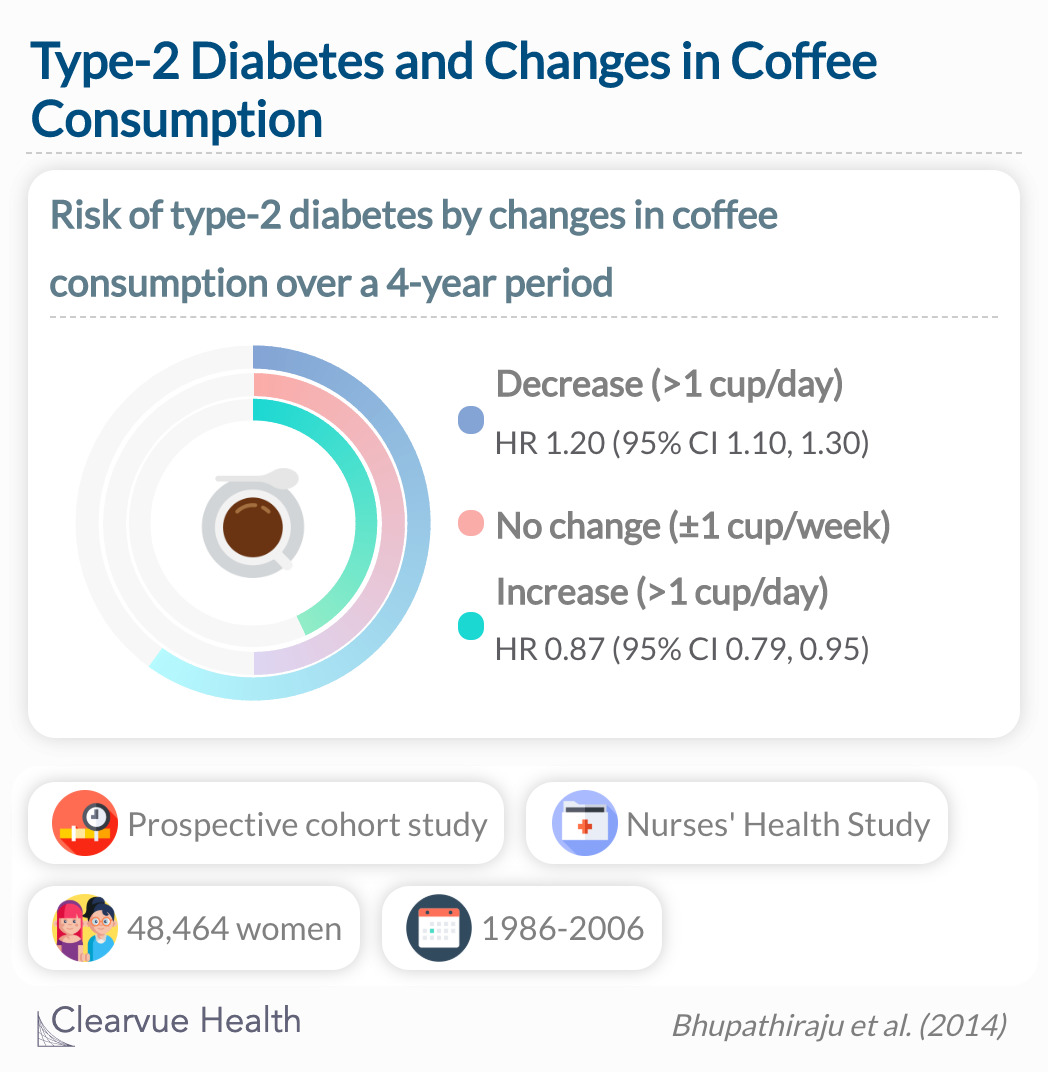Can drinking coffee reduce your risk of type-2 diabetes?
To some, coffee is a treat every now and then before a big presentation at work. For others, the local barista knows to make a red-eye when they walk in every morning. Regardless of your relationship with coffee, its popularity is booming. Since so many people are drinking coffee, scientists want to know the exact benefits and risks of consumption. Through their studies, they've found some unexpected results. In this case, we will review the evidence suggesting that coffee consumption correlates with a reduced risk of type-2 diabetes.
A collection of 30 supporting studies
Researchers searched on Pubmed, a clinical database, to identify every study that mentioned coffee and type-2 diabetes. They narrowed down their search to 30 studies with a total of 1,185,210 participants and 53,018 cases of type-2 diabetes. Each study compared low and high coffee consumption, as reported by participants, and met quality research standards. Low coffee consumption was defined as less than a cup a day, and high coffee consumption was around 5 cups of coffee a day.
The pooled relative risk (RR) was 0.71 (95% confidence interval [CI], 0.67-0.76) for the highest category of coffee consumption (median consumption, 5 cups/d) vs the lowest category (median consumption, 0 cups/d).
Source: Coffee consumption and reduced risk of developing type 2 diabetes: a systematic review with meta-analysis
Results were similar for caffeinated coffee consumption (per additional cup of coffee per day: RR = 0.93; 95%CI, 0.90-0.96) and decaffeinated coffee consumption (corresponding RR = 0.94; 95%CI, 0.90-0.98).
The researchers pooled all the results together and found that high coffee consumption reduced the risk of type-2 diabetes by 29%. These results are statistically significant and supported by the variability of 30 different studies and over a million different participants. Additionally, researchers found a dose-response, which means there was a linear relationship between coffee consumption and type-3 diabetes risk.
Even with strong evidence of an association, there is no clear explanation of how this happens. In this study, participants were asked about both caffeinated and decaffeinated coffee. By doing so, we can assume that something other than caffeine is responsible.
Impact of changing coffee habits
Strong supporting data comes from the US Nurses Health Study. This is a longitudinal, large-scale study that has been used to measure everything from diet to cancer. Out of the 48,464 women followed, researchers recorded 7,269 cases of type-2 diabetes. This study did not measure high vs low coffee consumption. Instead, it measured those who either increased or decreased coffee consumption over a 4 year period.
Participants who increased their coffee consumption by more than 1 cup/day (median change = 1.69 cups/day) over a 4 year period had an 11% (95% CI 3%, 18%) lower risk of type 2 diabetes in the subsequent 4 years compared with those who made no changes in consumption. Participants who decreased their coffee intake by more than 1 cup/day (median change = -2 cups/day) had a 17% (95% CI 8%, 26%) higher risk for type 2 diabetes. Changes in tea consumption were not associated with type 2 diabetes risk.
Source: Changes in coffee intake and subsequent risk of type 2 diabetes: three large cohorts of US men and women
Participants who increased their consumption of coffee over 4 years saw a reduced risk of type-2 diabetes. Contrarily, participants who decreased their coffee consumption saw an increase in risk. It is likely that decreasing coffee consumption increases your risk compared to continuing to drink the same amount of coffee, but likely returns you to your baseline risk. If this is the case, the benefits of coffee drinking do not sustain after you stop or decrease your coffee intake.
Key takeaways
There are still a lot of questions to be considered. For example, what are the lifestyle differences between people who do and do not drink coffee? It is possible that coffee drinkers are more likely to participate in health behaviors that are already known to reduce the risk of type-2 diabetes. As of now, the evidence does not prove that everyone should be drinking loads of coffee. However, it does support the consumption of coffee as one way to potentially reduce your risk of type-2 diabetes, along with regular exercise and a healthy diet.






































